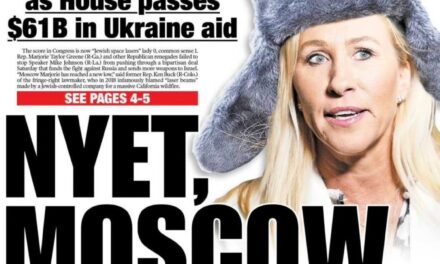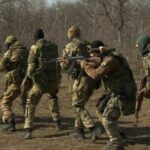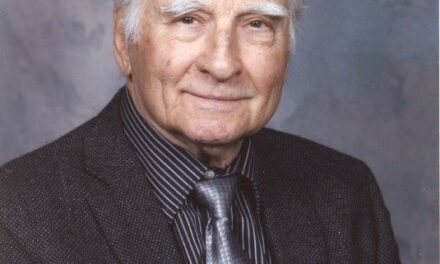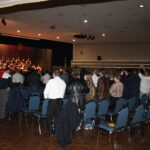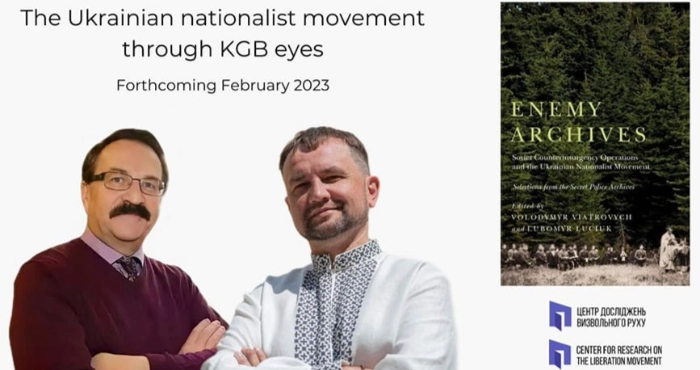Lubomyr Luciuk (L) and Volodymyr Viatrovych
NP-UN Western Bureau
As Russia wages a twenty-first-century war against the very existence of a Ukrainian state and nation, reanimating Soviet-era propaganda that portrayed Ukrainians as Nazi collaborators and fascists, the experiences of the Ukrainian nationalist underground before, during, and after the Second World War gain new significance, says the co-editor of a new book that contains the documents of the Soviet security forces of that period.
“Over a decade ago, my colleague, Volodymyr Viatrovych, then serving as director of the Ukrainian Institute for National Memory, in Kyiv, laid out a series of questions addressing what we believed were the most critical issues associated with academic and public debates over the ‘words and deeds’ of the Ukrainian nationalist movement before, during, and in the aftermath of the Second World War,” said Dr. Lubomyr Luciuk at the presentation of the book Enemy Archives: Soviet Counterinsurgency Operations and the Ukrainian Nationalist Movement – Selections from the Secret Police Archives at the Ukrainian Youth Unity Complex in Edmonton, April 20.
“For reasons that I’m not going to talk about here, the ensuing project took many years to complete, a frustrating delay that, nevertheless, if quite unexpectedly, proved beneficial – for who could have foreseen that, on 24 February 2022, Vladimir Putin would launch the armed forces of the Russian Federation against Ukraine?
“The genocidal agenda of his legions, seeking the erasure of Ukraine and Ukrainians, was justified as being necessary to ensure the country’s “de-Nazification,” meaning the elimination of “extreme nationalists,” whom he specifically referred to as Banderivtsi, members of the Organization of Ukrainian Nationalists (OUN) headed by Stepan Bandera. While Soviet-era propaganda routinely portrayed members of this Ukrainian nationalist movement as war criminals, Nazi collaborators, fascists and so on, a trope regurgitated regularly by the Russian Federation from the collapse of the Soviet Union in 1991 to the present, we certainly did not anticipate this overworked disinformation being deployed as an excuse for starting a large-scale war in 21st century Europe,” he added.
Dr. Luciuk also noted just how much the worldview of the Ukrainian nationalists of the mid-20th century inspired many of those engaged in a “just war,” defending their shared Ukrainian motherland.
“Tellingly, this struggle is being waged against a modern-day variant of the very same foe the men and women of the OUN and of the Ukrainian Insurgent Army (UPA) challenged, decades ago. We never could have predicted just how much contemporary salience our book would acquire, ironically because of the geopolitical fantasies of the KGB man in the Kremlin,” he said.
While engaged in a decades-long struggle against the Ukrainian nationalist movement and the Ukrainian Insurgent Army (UPA), and lasting into the mid-1950s, Soviet counterinsurgency forces accumulated a comprehensive and extensive archive of documents captured from the Organization of Ukrainian Nationalists and the UPA. Viatrovych and Luciuk have curated and carefully annotated a selection of these documents in Enemy Archives, providing primary sources the Soviet authorities collected and deemed useful for better understanding their opponents and so securing their destruction, a campaign that ultimately failed. The documents were translated into English by Marta Olynyk. The documents seized from the insurgents and Soviet analyses of them shed light on a wide range of experiences in the underground: how the movement struggled to maintain discipline and morale, how it dealt with suspected informers, and how it resisted the ruthless Soviet state, laying the foundations for the continuing Ukrainian struggle against foreign domination.
The book has over 1,000- pages including a 48-page Introduction, a 41-page thematic index which took three weeks to compile, contains 161 documents, three photo sections and eight colour maps.
For more information and to buy a copy go to: Enemy Archives | McGill-Queen’s University Press (mqup.ca)
Share on Social Media















